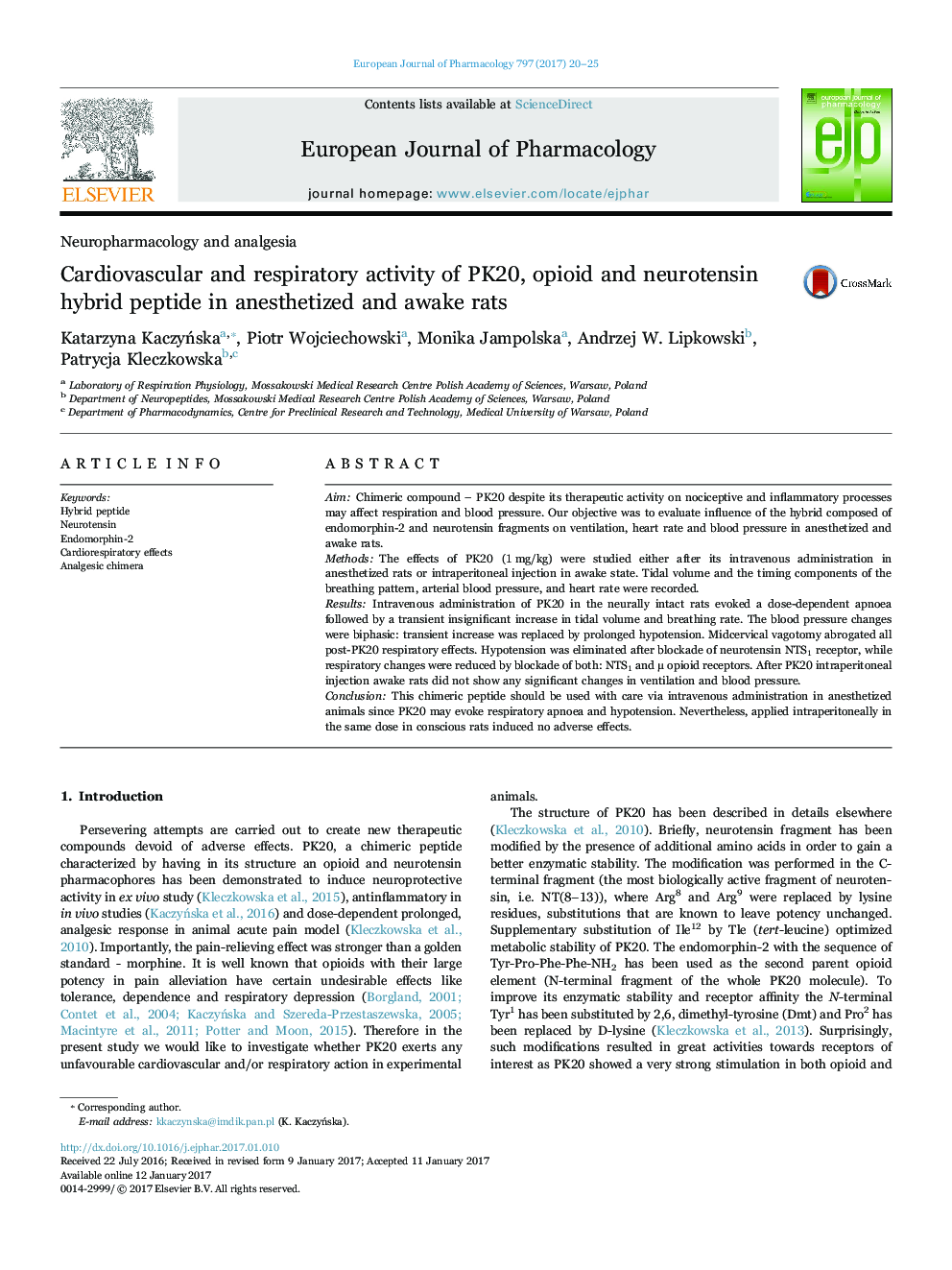| Article ID | Journal | Published Year | Pages | File Type |
|---|---|---|---|---|
| 5554825 | European Journal of Pharmacology | 2017 | 6 Pages |
AimChimeric compound - PK20 despite its therapeutic activity on nociceptive and inflammatory processes may affect respiration and blood pressure. Our objective was to evaluate influence of the hybrid composed of endomorphin-2 and neurotensin fragments on ventilation, heart rate and blood pressure in anesthetized and awake rats.MethodsThe effects of PK20 (1 mg/kg) were studied either after its intravenous administration in anesthetized rats or intraperitoneal injection in awake state. Tidal volume and the timing components of the breathing pattern, arterial blood pressure, and heart rate were recorded.ResultsIntravenous administration of PK20 in the neurally intact rats evoked a dose-dependent apnoea followed by a transient insignificant increase in tidal volume and breathing rate. The blood pressure changes were biphasic: transient increase was replaced by prolonged hypotension. Midcervical vagotomy abrogated all post-PK20 respiratory effects. Hypotension was eliminated after blockade of neurotensin NTS1 receptor, while respiratory changes were reduced by blockade of both: NTS1 and μ opioid receptors. After PK20 intraperitoneal injection awake rats did not show any significant changes in ventilation and blood pressure.ConclusionThis chimeric peptide should be used with care via intravenous administration in anesthetized animals since PK20 may evoke respiratory apnoea and hypotension. Nevertheless, applied intraperitoneally in the same dose in conscious rats induced no adverse effects.
